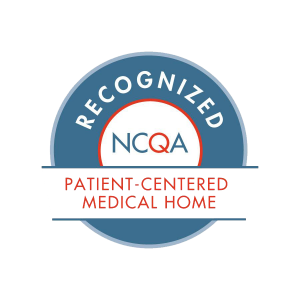
Brief summaries of why common labs are ordered. Please click on the individual tests for more information.
Complete Blood Count (CBC)
Looks at Red Blood Cells for anemia and such, at White Blood Cells for inflammation/infection, etc, and Platelets for blood clotting ability.
Complete or Basic Metabolic Panel (CMP/BMP)
Evaluating blood chemistry tests for sugar, electrolytes (potassium, eg), kidney (BUN, creatinine, GFR), liver tests, protein, & others. The CMP runs more tests than BMP.
Diabetes Tests
For fasting sugar (Glucose), long-term sugar control (Hemoglobin A1c), diabetic kidney damage leading to protein leak (urine Albumin/Creatinine ratio), Fasting Lipid Panel for other problems from diabetes.
Fasting Lipid Panel (FLP)
With a fasting test (no calories for 12 hrs or so), a full test looking at the total cholesterol, the “good” (HDL) and “bad” cholesterol, and fat (TG) levels can be done. Non-fasting, can screen for the total cholesterol value.
Liver Panel (Liver enzymes)
Looking for liver irritation from infection, inflammation, chemicals (including alcohol), medications, gall bladder stones, etc.
Thyroid Panel
Hormones help with basic body metabolism; problems can lead to fatigue, heart palpitations, weight gain/loss, etc. The brain makes Thyroid Stimulating Hormone (TSH) to regulate the Thyroid gland; direct measures of Thyroid hormones include Free T4, and T3 levels.
Urine Tests
Can give information about bladder/kidney infection, inflammation, bleeding (as with kidney stones or other). Diabetics are at risk for kidney damage causing protein loss, and the ratio of Albumin (protein) to Creatinine (kidney waste product) monitors this.
Women’s Health
Is a urine or blood screening test for pregnancy. Follicle Stimulating Hormone and Luteinizing Hormone may be used to look for Menstrual problems. The Papanicolaou smear is evaluated for irritation or irregularities that could suggest pre-cancer or cancer of the Cervix.
Assorted Blood Chemistry
These are assorted studies.
Other Blood Tests
Erythrocyte Sedimentation Rate (ESR) evaluates inflammation. ‘Blood thinning’ can be measured by the Prothrombin Time/ International Normalized Ratio, comparing a patient’s blood clotting to normal; Partial Thromboplastin Time is a test for clotting problems.
Infectious Disease Tests
Cultures usually take several days to grow bacteria, perhaps several weeks to grow fungi. Helicobacter pylori is an infection that can irritate the stomach and lead sometimes to ulcers. Looking at a slide treated with Potassium Hydroxide (K-OH) may reveal yeast or other fungi. Parasites and their Ova (O&P) can be a cause for chronic intestinal problems.
Reference links are to www.labtestsonline.org: American Association for Clinical Chemistry website. Don’t see the test you were looking for? Please visit the AACC website.


